#makarrata
Text
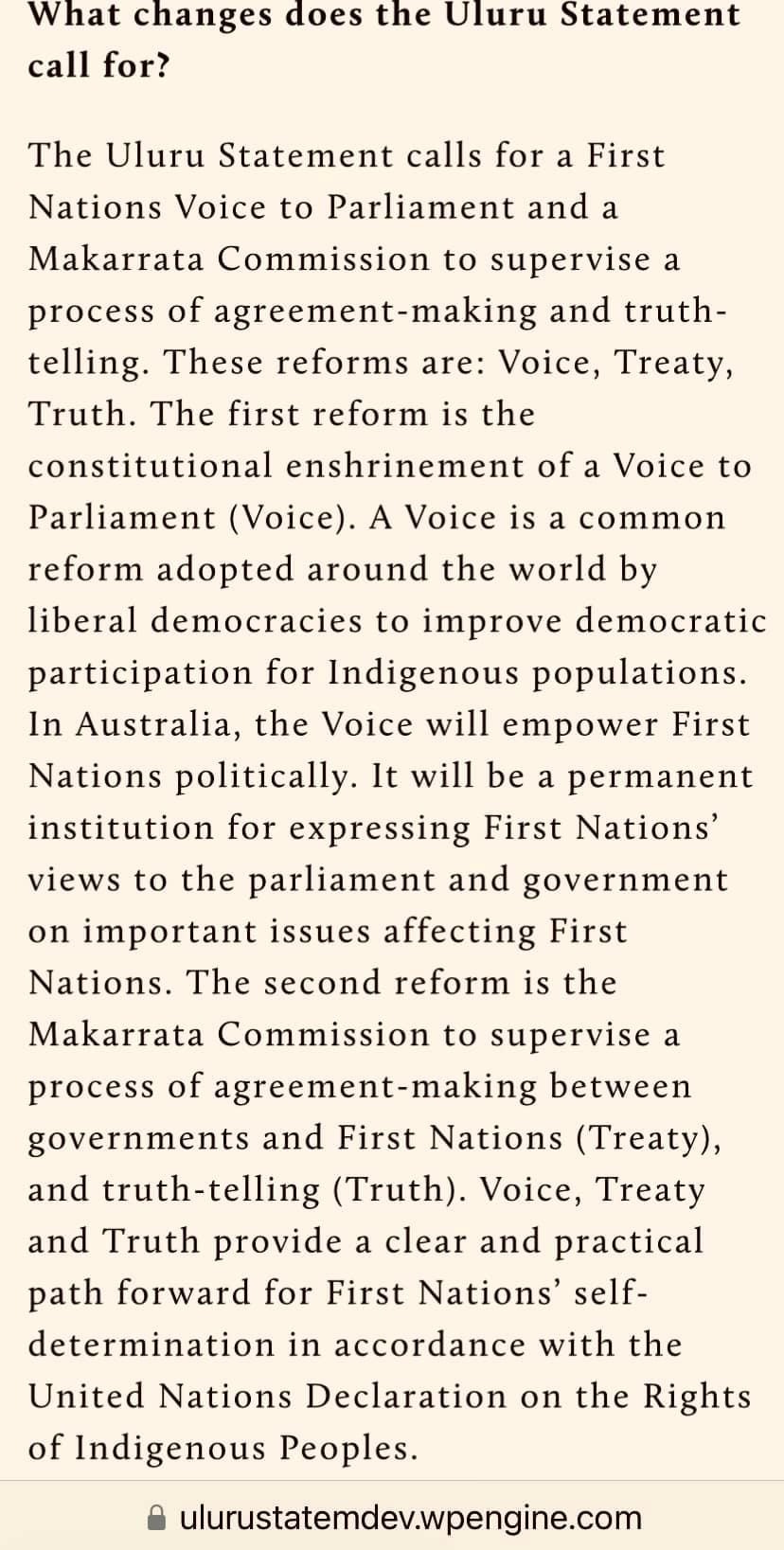
#Uluru Statement From The Heart#Makarrata#Makarrata Commission#Treath#Truth#truth-telling#First Nations#Voice to Parliament#The Uluru Statement#agreement-making#Indigenous#Australia#History Making#Vote YES#Referendum#Parliament#Government#YES
2 notes
·
View notes
Text
At this uncertain moment, I offer a bloody family saga from the frontier in the hope of us one day reaching the ultimate goal set at Uluru: the coming together after struggle, Makarrata.
"Killing for Country: A Family History" - David Marr
#book quotes#killing for country#david marr#nonfiction#uncertain#family history#frontier wars#uluru statement from the heart#makarrata#yolngu#phenomenal book#such a hard read but so important#every Australian should read it#australian history
0 notes
Text

"I acknowledge indigenous Australian’s connection to land and their sovereignty. I pay respect to the old stories of the land on which I live and work.
The indigenous people of the world hold the old stories, as they are embedded in their traditional knowledge.
Let’s look after the old stories. We need them more than ever."
OUR CAMPAIGN FOR A REFERENDUM ON AN INDIGENOUS CONSTITUTIONAL RECOGNITION THROUGH A VOICE TO PARLIAMENT NOW HAS A DESTINATION.
ALL AUSTRALIANS CAN BE INVOLVED IN THE JOURNEY.
You can find out more here:
https://fromtheheart.com.au/
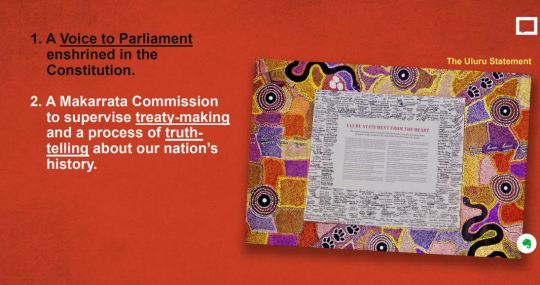
#indigenous Australians#connection#land#sovereignty#On Country#indigenous people#traditional knowledge#old stories#Uluru Dialogue#The Uluru Statement#First Nations Voice#Uluru Statement From The Heart#First Nations Voice To Parliament#From The Heart#Makarrata Commission#treaty-making#truth-telling#history#Referendum 2023
22 notes
·
View notes
Text
midnight oil have literally never made a flop album
#ive been relistening to them all the past few days and...theyre just all so amazing#i just have blue sky mining capricornia and makarrata left
2 notes
·
View notes
Text
The week of processing and mourning and considering is over, in Australia, for Indigenous people, and they have released a statement.
I have read it in it's entirety.
But just before I was able to, Senator Michaelia Cash stated that the referendum result was not about rejecting Indigenous people, but was really about rejecting the PM, Anthony Alabanese.
In stating this, she has now revealed exactly what was behind the Liberal Party's motivation in supporting the "No" vote. So now, because of the tone taken in their campaign, all across Australia our state politicians have backed away from the long and complicated process of establishing treaties, and any form of truth-telling and makarrata.
I am full of the raging and volcanic fury that is the spitting of venomous and toxic white hot acid because of the way I feel. "If you don't know, vote 'No'," was their mantra. And it was every bit as obscene and repugnant as you imagine it is. Begging people to not exert even the smallest amount of effort to find out what the referendum was about, because they knew that details were available, and not nearly as scary as they wanted people to think it was.
Now the statement has been released, and it is as straight forward and heart felt as it could be. And I'm hurting all over again when I read it.



What a country we are.
#the voice referendum#Open letter to Australia#indigenous voice to parliament#The referendum result#Australia#auspol
61 notes
·
View notes
Text

Tracklist:
First Nation • Gadigal Land • Change The Date • Terror Australia • Desert Man, Desert Woman • Wind In My Head (Makarrata Version) • Uluru Statement From The Heart / Come On Down
Spotify ♪ YouTube
#hyltta-polls#polls#artist: midnight oil#language: english#decade: 2020s#Rock#Alternative Rock#Aussie Rock#artist: jessica mauboy#artist: tasman keith#artist: dan sultan#artist: joel davidson#artist: kaleena briggs#artist: bunna lawrie#artist: gurrumul yunupingu#artist: alice skye#artist: frank yamma#artist: kev carmody#artist: sammy butcher#artist: pat anderson#artist: stan grant#artist: adam goodes#artist: ursula yovich#artist: troy cassar-daley
8 notes
·
View notes
Text
Some dinguses have apparently been trolling Peter Garrett’s Insta and are shocked that the Midnight Oils are political and supporting Yes.
Peter Robert Garrett.
Is political.
YOU DON’T SAY.
It’s not like the man has ever been an ALP Minister or something in the federal government and the Oils have an entire album called the Makarrata Project.
(Checks smudged notes on hands) I regret to inform you…
It’s the OILS. What do you think their entire discography is about, hey?
#shocked SHOCKED to find politics in these Midnight Oil songs#the man who was an ALP pollie for 9 years supports the ALP Yes campaign and has made material for it???#astonishing that the band who wore Sorry shirts while performing at the Sydney Olympics have opinions on Aboriginal rights
6 notes
·
View notes
Text

+ “We have our eye on the same destination – a sustainable future where Indigenous people are recognised for their wisdom and honoured for their culture.” – Kirstie Parker
Whose Voice is Missing?
In a world filled with noise, sometimes it's the voices we don't hear that matter the most. The power of listening, truly listening, goes far beyond mere hearing; it's about acknowledging the stories left untold, the perspectives left unspoken, and the lives left unrecognised. In this blog post, I want to explore the profound significance of listening to the missing voices, especially in the context of Australia's rich tapestry of cultures and histories.
The Need for Indigenous Voices
Australia is a nation with a complex past, where Indigenous peoples have endured centuries of struggle and resilience. As we stand on the precipice of an important referendum on Saturday 14 October 2023, we must confront a fundamental question: Whose voice is missing?
For too long, Indigenous voices have been marginalised and silenced in the broader narrative of our nation. It's a narrative marked by historical injustices, discrimination, and a failure to genuinely engage with Indigenous communities in shaping their own destinies.
In 2016 and 2017, the Referendum Council led a series of Regional Dialogues to discuss options for constitutional recognition with First Nations people from all corners of the country. The purpose of these First Nations Regional Dialogues was not only to ensure that Aboriginal voices were heard but also to place Indigenous decision-making at the heart of the process.
The Uluru Statement from the Heart
The stories that were shared in those Dialogues were collected, and, along with the Records of Meetings, presented to the First Nations Constitutional Convention at Uluru in May 2017. The Convention endorsed the work of the Dialogues, and approximately 250 First Nations delegates came together to issue the Uluru Statement from the Heart to the Australian people.
The Uluru Statement from the Heart is a resounding call by First Nations people for genuine and practical change in Australia. It seeks to deliver constitutional recognition through a Voice to Parliament and the establishment of a Makarrata Commission, which will oversee processes of treaty-making and truth-telling.
Within the Uluru Statement from the Heart lies a powerful passage:
"With substantive constitutional change and structural reform, we believe this ancient sovereignty can shine through as a fuller expression of Australia’s nationhood."
This statement is a profound testament to the vision and generosity of Aboriginal and Torres Strait Islander peoples toward the Australian nation. It offers the promise that, if we enact these reforms correctly, it will not only benefit Aboriginal and Torres Strait Islander people but will also enrich our shared sense of identity and nationhood. It will strengthen our collective humanity, our collective sense of belonging, and our collective story.
Personal Journey and the Impact of Michael Tuhanuku
My journey of understanding and embracing the stories and struggles of Indigenous Australians has been deeply transformative. I've come to realise that for Indigenous Australians, as for all peoples who have suffered from discrimination and exclusion, history is not just a distant past; it's a living, breathing part of their identity. It's a history marked by painful and often murderous accounts of being driven off the land they had called home for thousands of years. So much more than land was stolen from them after the arrival of European settlers—camping grounds, sacred sites, access to food, culture, their rightful place among Australians, and their inherent dignity. This loss became crystal clear to me, particularly when I delved into the heartbreaking story of the stolen generations—the historic forced removal of children from their families under cruelly racist assumptions about what was best for them.
However, my education on these matters didn't solely come from books and documentaries. It came from my encounters with First Nations students and their families, particularly one student who left an indelible mark on my perspective—Michael Tuhanuku. Michael's heritage was part Australian and part Solomon Islander, and he identified very closely with his Solomon Island roots. He joined the school I was working at several years ago, entering Year 10, and quickly seized opportunities to engage with all aspects of his learning and the life of the school.
Through the school's rugby program, ministry, and community outreach, as well as comprehensive academic and creative offerings, including his participation in a three-week Visual Arts tour of Italy, Michael quickly established his voice and shared his unique story. Michael was, and still is, a renaissance man, a young individual of genuine integrity, character, and broad leadership attributes. In his final year, when he was appointed as College Captain in 2015, the entire school community, especially his peers, welcomed this decision with enthusiasm.
I distinctly remember our conversation when I asked him about his goals as Captain. One of the first things he expressed was his desire for our community to find a more authentic way to recognise Indigenous Australians. For Michael, authentic recognition meant going beyond mere words; it meant tangible actions.
Throughout 2015, in his characteristic subtle leadership style, Michael continued to challenge our school community regarding what we were doing in this space. One notable initiative was his collaboration with students, staff, and local Elders to craft an appropriate Acknowledgment of Country for the school. For Michael, having a voice wasn't sufficient; that voice needed to lead to agency through advocacy for others. While he himself was not Aboriginal, his unwavering passion for justice and genuine reconciliation inspired all of us, including myself, to reevaluate our roles and responsibilities.
I had previously considered myself a person with great empathy for our Indigenous brothers and sisters. Still, through my conversations with Michael, I came to realise that there was so much more I needed to learn and do in response to what I was discovering. His challenge prompted me to ask myself, "What are we, what am I, doing at our school to truly animate the rich and remarkable story of Aboriginal and Torres Strait Islander peoples? What was missing?"
I felt compelled to take action and educate myself further on this issue. I formed the belief that it was essential for all Australians not to keep the history of First Nations people a mystery. As a Christian, I saw parallels in the mystery of God's action in our world, drawing us beyond what we can comprehend or hope for. Similarly, I believed that we are invited to allow history to be a mystery in the fullest sense of the word. It's more than a dry recital of dates, places, and events. It's a story of humanity that makes a claim on us all—a story of good and evil, suffering and resilience, crime and reconciliation, contempt and respect. It transcends history to become the power of storytelling and education—a power that can heal and build true reconciliation.
And as Peter Malinauskas, Premier of South Australia, aptly puts it,
“If our forefathers and mothers can say yes to universal franchise, if our great grandparents can say yes to waves of migration, if our grandparents can say yes in 1967, if our parents can say yes to land rights, then this generation is capable of saying yes to an advisory committee.”
This quote reminds us that change is a generational endeavour, and it serves as a bridge to the profound message of the Uluru Statement from the Heart.
Reconciliation and the Power of Storytelling
National Reconciliation Week, with its poignant milestones like National Sorry Day and the 1967 Referendum anniversary, serves as a powerful reminder of the shared history that binds us all. It's a history that carries the marks of suffering, resilience, and the ongoing struggle for recognition and dignity.
The stories we tell and the stories we listen to have the power to shape our understanding of the world. They serve as bridges to empathy and bridges toward reconciliation. In this context, Michael's story and the stories of countless others challenge us to ask: Whose voices have been absent from our narratives of history and reconciliation?
Dadirri and Deep Listening
Dadirri—an Indigenous practice rooted in deep listening, quiet awareness, and waiting—is a concept that resonates with the very heart of reconciliation. It's an invitation to attune ourselves to a deeper understanding of the beauty of nature, the power of healing, and the voices that often go unheard.
As Australians, we're called to do more than simply acknowledge history; we're invited to embrace it as a mystery that reveals both our flaws and our potential for growth. Dadirri, with its emphasis on reflection, contemplation, and respect, offers a path toward understanding and healing.
Conclusion: The Voice is an Invitation to Listen
In 1967, Australians voted to allow Indigenous Australians to be counted in the Census. In 2023, I'm voting yes to do more than count Indigenous Australians; I'm voting yes to give them a voice and a deep sense of belonging.
Dadirri reminds us that deep listening is an act of respect—for ourselves, our fellow humans, and the Earth we share. It's a practice that can guide us toward a better way of educating, living in society, and understanding one another. As you read this, remember the Australian Aboriginal proverb:
"We are all visitors to this time, this place. We are just passing through. Our purpose here is to observe, to learn, to grow, to love… and then we return home."
This ancient wisdom teaches us that our time here is limited, but our impact can be profound when we open our ears and hearts to others.
I challenge you to join me on this profound journey of listening, learning, and love by embracing the missing voices that can shape a brighter future for us all.
Adriano Di Prato is a best-selling author, broadcaster and the Academic Operations Manager at LCI Melbourne, a progressive art, design & enterprise private higher education institute.
3 notes
·
View notes
Text
ULURU STATEMENT FROM THE HEART
We, gathered at the 2017 National Constitutional Convention, coming from all points of the southern sky, make this statement from the heart:
Our Aboriginal and Torres Strait Islander tribes were the first sovereign Nations of the Australian continent and its adjacent islands, and possessed it under our own laws and customs. This our ancestors did, according to the reckoning of our culture, from the Creation, according to the common law from ‘time immemorial’, and according to science more than 60,000 years ago.
This sovereignty is a spiritual notion: the ancestral tie between the land, or ‘mother nature’, and the Aboriginal and Torres Strait Islander peoples who were born therefrom, remain attached thereto, and must one day return thither to be united with our ancestors. This link is the basis of the ownership of the soil, or better, of sovereignty. It has never been ceded or extinguished, and co-exists with the sovereignty of the Crown.
How could it be otherwise? That peoples possessed a land for sixty millennia and this sacred link disappears from world history in merely the last two hundred years?
With substantive constitutional change and structural reform, we believe this ancient sovereignty can shine through as a fuller expression of Australia’s nationhood.
Proportionally, we are the most incarcerated people on the planet. We are not an innately criminal people. Our children are aliened from their families at unprecedented rates. This cannot be because we have no love for them. And our youth languish in detention in obscene numbers. They should be our hope for the future.
These dimensions of our crisis tell plainly the structural nature of our problem. This is the torment of our powerlessness.
We seek constitutional reforms to empower our people and take a rightful place in our own country. When we have power over our destiny our children will flourish. They will walk in two worlds and their culture will be a gift to their country.
We call for the establishment of a First Nations Voice enshrined in the Constitution.
Makarrata is the culmination of our agenda: the coming together after a struggle. It captures our aspirations for a fair and truthful relationship with the people of Australia and a better future for our children based on justice and self-determination.
We seek a Makarrata Commission to supervise a process of agreement-making between governments and First Nations and truth-telling about our history.
In 1967 we were counted, in 2017 we seek to be heard. We leave base camp and start our trek across this vast country. We invite you to walk with us in a movement of the Australian people for a better future.
0 notes
Text
Indigenous opposition to the Voice has rarely been heard, because when they voice their opposition, they are dismissed, censored or attacked.
The bias in favour of the Voice has drowned out all opposing views. We are to believe that all Aboriginals and Torres Strait Islanders are united in their support for the Voice. This couldn’t be further from the truth.
In 2017 when the Uluru Statement from the Heart was signed off by some 250 Aboriginal delegates who gathered in central Australia at the First Nations National Constitutional Convention they asked for a Treaty, a Makarrata Commission and a Voice to Parliament, not an amendment to the Constitution.
The Parliament already has the power under the Constitution to set up a Voice to Parliament today or at any time of its choosing. So, why does it have to go in the Constitution at an enormous cost of some $180 to $200 million (US$122 to $135 million), not including the money spent already? How about Parliament legislate the Voice and do something better with that money by spending it on the ground in ways that could produce practical results right now?
No national body can speak for the circa 300 traditional owner groups, Australia’s “First Nations,” it would be a huge bureaucratic structure drowning out Aboriginal voices, not enabling them to be heard. I have not heard a convincing argument as to why the Voice needs to be in the Constitution.
And MOST Importantly, There is no detail on how this Voice will be any different to the others, except it will be expensive, arbitrary, permanent, and entrenched as a concept in a document that otherwise has no definition or guidance of what it is supposed to be.
https://fb.watch/l8gKCGt0rK/?mibextid=RUbZ1f
Read more articles at:
https://veritywarner90.wordpress.com
0 notes
Text
Annerley Labor News – March 2023
Support for ‘Uluru Statement from the Heart’ re-affirmed
Annerley Labor has formally re-iterated its support for the ‘full implementation’ of the Uluru Statement from the Heart, which encompasses the commitment to a constitutionally enshrined voice to our national parliament and a ‘Makarrata’ Commission.
Members have already been very active in campaigning for the ‘Yes’ vote in the upcoming…

View On WordPress
0 notes
Text
0 notes
Text

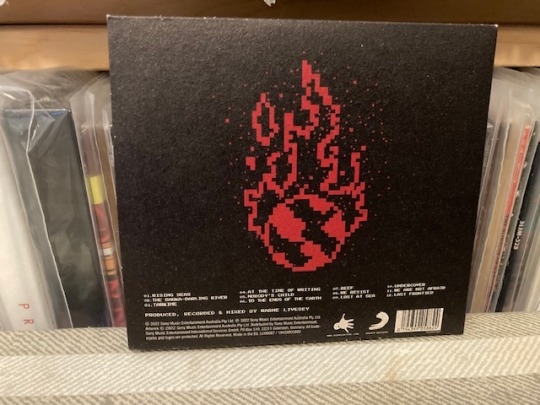
9 April 2022: Resist, Midnight Oil. (Sony Music, 2022)
I bought two consecutive Midnight Oil albums in the ’80s and ’90s; as they were the ones everybody else bought, you can probably guess that this means their US breakthrough Diesel and Dust (1987) and follow-up Blue Sky Mining (1990). I occasionally picked up used copies of other parts of their catalog, prior to those albums as well as after, and before this brand-new one came out I had accumulated six of their twelve studio albums (along with a small pile of singles, EPs, a live album, etc.). In 2017 I saw the band live, and it was as galvanizing and fantastic as I’d expected—their live shows seem to be generally regarded with high acclaim—and they’ve lingered in my mind a bit. In 2020 Midnight Oil released their first album in 18 years, The Makarrata Project, but I didn’t buy it because it was a collaboration featuring lots of guest vocalists, and that’s not what I’m after with Midnight Oil. In late 2020, longtime bassist Bones Hillman died. Before his death the band made recordings that would result in this new album, Resist, so this album is the final work the group would do with him. So instrumental to their sound was Hillman that the band also decided to retire from touring—following one last jaunt. They’re currently on tour as I write this, and were I not going to be out of town on June 10 when they play at a Chicago venue I can walk to from my house, I would be there.
So what about Resist? Well, this is a cheap joke, but I probably could have resisted buying it. I’ve heard it only once so far and found it pretty turgid. It’s an hour long but feels like 80. It is easy to dismiss an album after one play, and Resist will get other chances, but truth be told I am a casual Midnight Oil fan at best and this serves as a post-2017 tour memento more than anything for me.
Above are the front and back covers. This is a chipboard sleeve, so there are imperfections, but I like the effect. Midnight Oil has done this before, and very early on when no one was using paper covers: their 1990 US CD maxi-single for “Forgotten Years” was in a chipboard sleeve. 1990 marked the return of Earth Day celebrations, and ecology was on a lot of people’s minds then, including Midnight Oil. Now it’s 2022 and the images of the Earth in flames on Resist’s artwork remind us of how low we have sunk since those 1990 days of optimism.
Below are both sides of the fold-out insert.

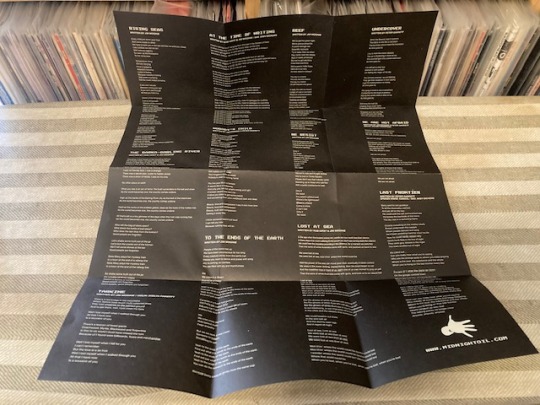
Next, here is the opened gatefold followed by the disc itself.

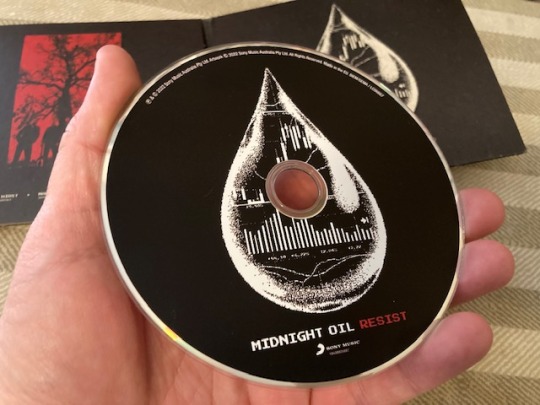
Just for good measure, here is that 1990 “Forgotten Years” single in the chipboard jacket that I mention above. Note the statement “MANUFACTURED FROM 100% RECYCLED PAPER” on the back; that wasn’t common in 1990.



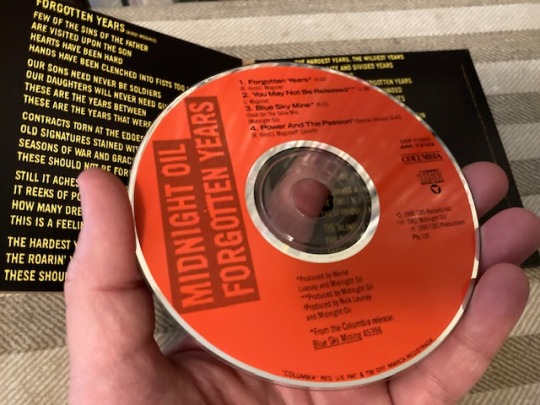
0 notes
Photo
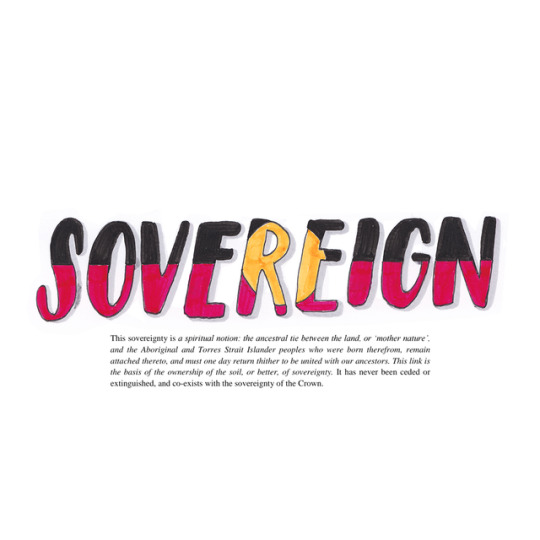
January 26th. It's time for Makarrata.
2 notes
·
View notes
Photo
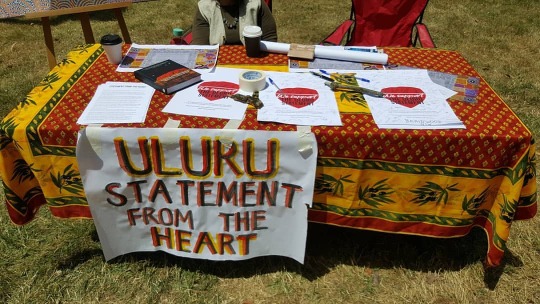
I'm in Braidwood NSW today for the 25th Airing of the Quilts/Braidwood Quilt Festival, and I thought that this was interesting 🙂 #statementfromtheheart #uluru #aboriginal #abiriginalart #firstnationsvoice #makarrata #braidwood #braidwoodnsw #airingofthequilts #25thairingofthequilts #braidwoodquiltfestival #annieaspland #evelynthespider @evelynthespider (at Braidwood, New South Wales) https://www.instagram.com/p/B5MITvYHi76/?igshid=r4p7b3i6v5bz
#statementfromtheheart#uluru#aboriginal#abiriginalart#firstnationsvoice#makarrata#braidwood#braidwoodnsw#airingofthequilts#25thairingofthequilts#braidwoodquiltfestival#annieaspland#evelynthespider
0 notes
Text
This being NAIDOC (National Aborigines and Islanders Day Observance Committee) Week in Australia, I have been paying particular attention to the carefully crafted gift our indigenous people presented to us a few years ago... The Uluru Statement From the Heart.
https://fromtheheart.com.au/uluru-statement/the-statement/
It was rudely and ignorantly dismissed by our then Prime Minister, Malcolm Turnbull, who decided that the call for a Voice to Parliament was impossible. I was embarrassed by this... to not meet and talk with the authors of the Statement, to just not want to hear, as if he had more important stuff to do... it dismayed me.
“We seek constitutional reforms to empower our people and take a rightful place in our own country. When we have power over our destiny our children will flourish. They will walk in two worlds and their culture will be a gift to their country.
“We call for the establishment of a First Nations Voice enshrined in the Constitution. Makarrata is the culmination of our agenda: the coming together after a struggle. It captures our aspirations for a fair and truthful relationship with the people of Australia and a better future for our children based on justice and self-determination.”
How could we ignore the care that went into this, the consideration and sensitivity of this request, to meet, and talk, and join together? And Malcolm Turnbull dismissed it out of hand, “You’re calling for a third chamber of government,” was his response. If you don’t meet and talk with people, how do you know what they are asking for?
1 note
·
View note